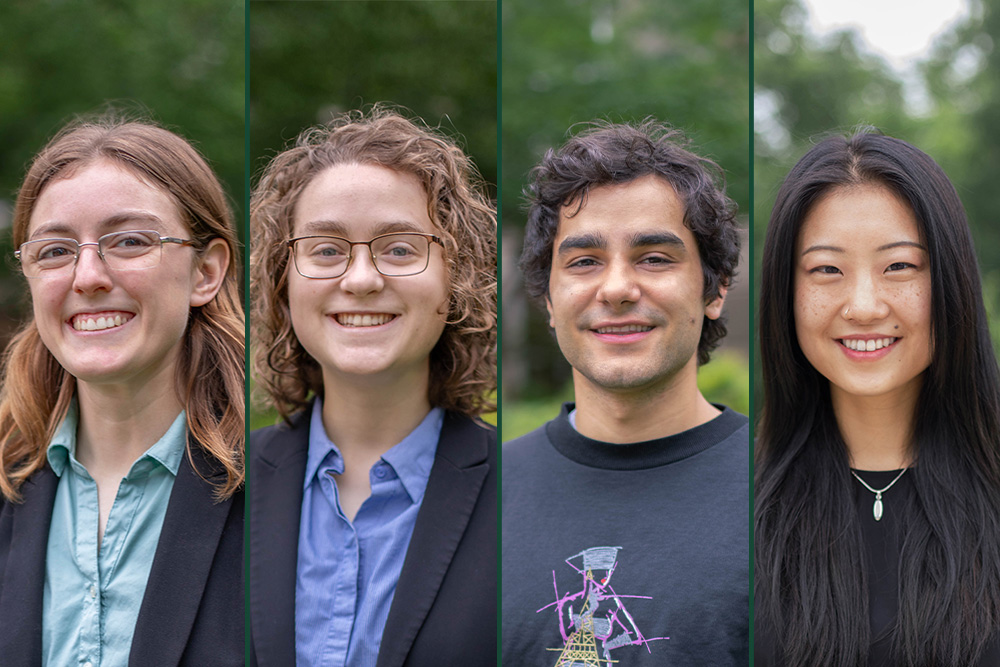Seven University of Texas at Dallas students and alumni have been selected for the 2022 National Science Foundation (NSF) Graduate Research Fellowship Program. The highly competitive national program provides a stipend and tuition support for students pursuing graduate studies in science, technology, engineering and mathematics.
“It’s a signal that these are high-quality students who are ready to go places,” said Dr. Juan González, vice provost for global engagement, dean of graduate education and holder of the Francis S. Johnson Chair for Graduate Education. “They have ideas and are ready to hit the ground running.”
González, who previously has served as an evaluator for the program, said the program’s selection process is rigorous.
“The evaluators discuss every detail about the students, covering their strengths and potential,” he said.
Here are profiles of four recipients who studied at UT Dallas this spring.
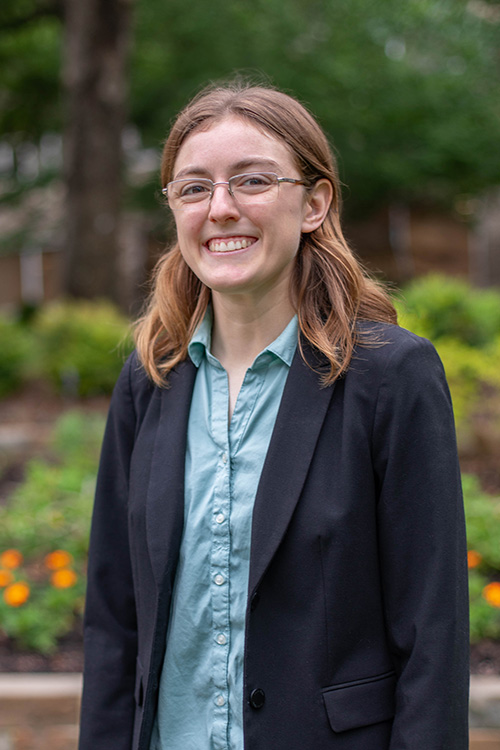
Patricia Mathu BA’22
Mathu was born and raised in suburban Milwaukee, but as she worked toward earning her degree at UTD, she became passionate about food and agriculture and how the environment affects them.
Mathu, a National Merit Scholar and a Eugene McDermott Scholar, majored in history in the School of Arts and Humanities but dabbled in many other areas of study at UTD, including archaeology, geography and political science. She said the interdisciplinary learning opened a world of opportunities.
“My time at UT Dallas has allowed me to explore different things that I wouldn’t have done if I had been in a straight anthropology or archaeology program,” she said. “The NSF evaluators talked about how refreshing it was to see someone with such an interdisciplinary experience.”
In addition to participating in the University’s sustainability program, Mathu, who graduated magna cum laude and with Collegium V honors, spent last summer working and living on a farm and learning about the resilience of various food networks. She will attend the University of Alabama to purse a master’s degree in anthropology.
She said the fellowship will give her the option to extend her graduate education and eventually pursue a doctorate.
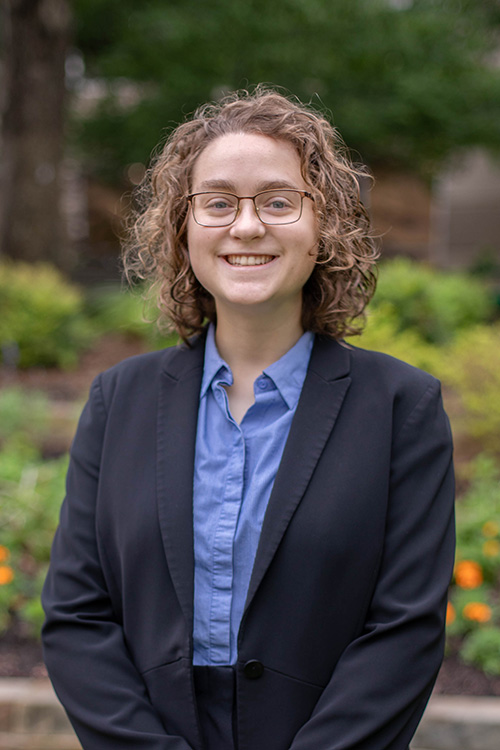
Anja Sheppard BS’22
Sheppard, who earned a computer science degree in May, hopes to use her research skills eventually at NASA. She has interned for the agency’s Johnson Space Center for the past year and a half.
“I am very interested in continuing to work for NASA as a research scientist or a mission scientist,” she said. “I would love to be able to apply my robotics expertise to a project that actually gets sent out into space.”
Sheppard has been involved in research since she was in high school. As a UTD freshman, Sheppard joined the Laboratory for Autonomous Robotics and Systems in the Erik Jonsson School of Engineering and Computer Science.
The North Carolina native, who graduated summa cum laude and with Collegium V honors, is a National Merit Scholar, Eugene McDermott Scholar and Goldwater Scholar. She said that receiving the NSF fellowship reflected her investment in research, internships and mentorships during her undergraduate years.
“It grants you a certain level of recognition that you have accomplished research and you will be committing many years to doing research in the future,” she said.
Sheppard will attend the University of Michigan to pursue a doctorate in robotics.
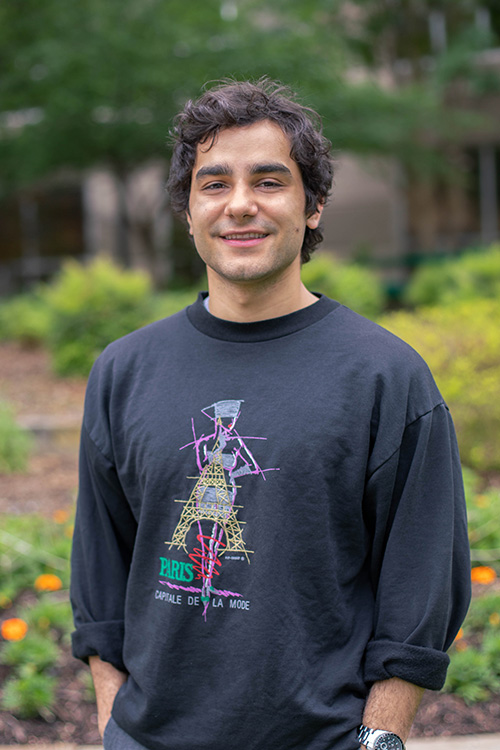
Isaac Wright BS’22
Wright comes from a family of scholars. The Tennessee native sees his recent degree in physics from the School of Natural Sciences and Mathematics as the first step to starting his own academic career.
“It’s my childhood dream. And, in my case, it’s the family business,” he said. “My dad’s a professor, and his dad’s a professor, so I just want to extend the line.”
In his pursuit of a PhD in physics, Wright will study the Earth’s upper atmosphere at UTD’s William B. Hanson Center for Space Sciences with Dr. Fabiano Rodrigues, associate professor of physics and Fellow, Eugene McDermott Professor.
Wright, a National Merit Scholar and magna cum laude graduate, said the NSF fellowship not only will help in his graduate studies, but it also puts a spotlight on UTD and its commitment to research.
“This fellowship seems to be awarded disproportionately to a lot of large Ivy League schools, and one of the things that I — and other fellowship awardees — like about this is that we’re all pretty proud to be representing UT Dallas.”
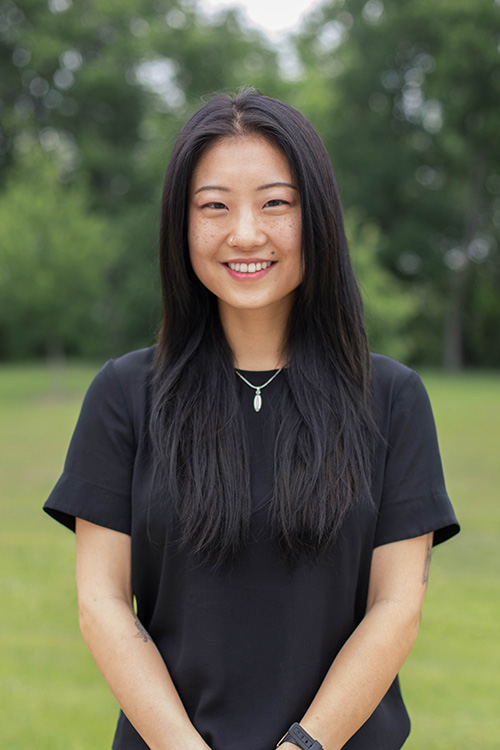
Da Yeoun “Hanna” Moon
Moon, who earned her bachelor’s degree in psychology at San Diego State University, saw UTD as the ideal place to pursue an advanced degree in cognition and neuroscience. The second-year doctoral student has a particular interest in the neuroscience of aging.
“The research fit was good,” she said. “After I interviewed, I had a good feeling about the program and the people. It seemed to be a good environment for me.”
Moon is studying with Dr. Kristen Kennedy and Dr. Karen Rodrigue, associate professors of psychology in the School of Behavioral and Brain Sciences. The professors’ labs at the Center for Vital Longevity focus on the neuroscience of aging.
The Arcadia, California, native said the fellowship will allow her flexibility and provide opportunities.
“I’ll be able to devote my time to research and not have to split it with teaching assistantships,” she said. “I am very thankful.”
Three other UT Dallas alumni, who have begun their graduate studies at other institutions, also received NSF graduate research fellowships:
- Benjamin Allsup BS’20, a Eugene McDermott Scholar who earned a biomedical engineering degree, is pursuing a PhD in biological engineering at the Massachusetts Institute of Technology.
- Esteban Fernandez Morales BS’20, who received a degree in mathematics, is working toward a PhD in biostatistics at Brown University.
- Eugene McDermott Scholar and neuroscience graduate Jennifer Jenks BS’21 is pursuing a PhD in neuroscience at Oregon Health & Science University.
